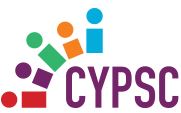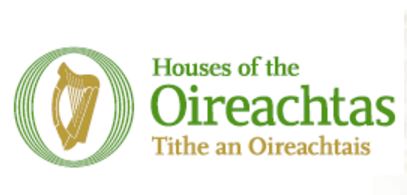FSSU
- Published: 21 March 2017
For the attention of the Secretary to the Board of Management:
As part of the roll-out of the Financial Support Services Unit (FSSU) to the primary sector from September 2017, we are conducting a nationwide survey to gauge the level of support to be provided by the Unit. The FSSU has consulted with the primary school’s Management Bodies in relation to the services of the Unit. All information provided in this survey will be treated in the strictest confidence.
Background
Established by the Department of Education & Skills in 2005, the FSSU is a support mechanism for school management in the voluntary schools sector. The DES has requested the FSSU to expand these services to school management of primary schools. The main function of the FSSU is to provide a support mechanism which will enable school management to comply with Section 18 of the Education Act 1998:
(1) Except in the case of a school established or maintained by a vocational education committee, a board shall keep all proper and usual accounts and records of all monies received by it or expenditure of such monies incurred by it and shall ensure that in each year all such accounts are properly audited or certified in accordance with best accounting practice.
(2) Accounts kept in pursuance of this section shall be made available by the school concerned for inspection by the Minister and by parents of students in the school, in so far as those accounts relate to monies provided in accordance with section 12.
In order for Boards of Management to comply with Section 18, the Board of Management of each primary school must prepare annual accounts in respect of each school’s financial year ending 31stAugust. The FSSU will issue further guidance on this matter. The DES will issue a Circular to inform you of our new service and underline the requirement to file annual accounts with the FSSU.
We would appreciate if you could complete this short survey by Friday 31stMarch 2017.
To access this survey please click here.
Louth, Wexford & Kerry: Children and Young Peoples Services Committees (CYPSC)
- Published: 15 March 2017
Louth, Wexford & Kerry: Children and Young Peoples Services Committees (CYPSC)
This year we have seen a re-invigoration and commitment at government level to the Children and Young People Services Committees (CYPSCs) nationally. This is reflected in the appointment of 27 full-time co-ordinators and increased budgetary provision. CYPSCs are expected to take an increasingly significant role in coordinating and commissioning services at local level. This has huge significance for schools and children.
IPPN has had representation on county CYPSCs since they were first established in 2007. There is currently an IPPN rep on nearly every county CYPSC around the country.
IPPN and the Children and Young Peoples Services Committees (CYPSC) are now looking for principals to fill vacancies which have arisen in Louth, Wexford & Kerry CYPSCs. Involvement on these committees provides principals with an excellent opportunity to work with key statutory and non-statutory agencies in their locality and to influence how services are coordinated at local level. For more information on CYPSC's see the article in September's Leadership+ or visit www.cypsc.ie.
Principals working in Louth, Wexford and/or Kerry interested in becoming involved on their local CYPSC should e-mail Padraig McCabe at ippncypsc@gmail.com for further information.
IPPN Survey on School Admissions Information Document
- Published: 14 March 2017
The following information has been taken from the DES website - Consultation Paper on The role of denominational religion in the school admissions process and possible approaches for making changes.
1. Catchment area
A catchment area approach would prohibit religious schools from giving preference to children of their own religion who live outside the catchment area ahead of non-religious children or children of other religions who live inside the catchment.
Since there is no statutory basis for the creation of catchment areas, legislative change would be required to underpin a measure based on each religious school having to define a unique catchment area. Legislation would have to reflect the differences between different denominations and religions. For example, there are a very large number of Catholic schools so those schools would serve reasonably small areas. On the other hand, a Church of Ireland school will serve a much larger area. There are two existing Muslim schools in Dublin who potentially would have to effectively divide the greater Dublin area between them.
It would be expected that religious organisations will in many cases base their catchment areas on existing parishes. A related consideration is how to deal with a situation where there are two or more Catholic schools within the Catholic parish, common in urban areas.
For such a system to operate, there would need to be methods in place to ensure that religious schools cannot draw their catchment areas artificially large, such as to allow them fill all their places with children of the same religion, at the expense of local non-religious children/children of other religions. There would probably have to be a rule to say that catchment areas for two schools of the same religion could not overlap – i.e. one house could only be in the catchment area for one school of any one religion.
There would also need to be structures to adjudicate on boundary disputes. Initial work suggests that these should be adjudicated on by the relevant church or religious authorities, who would have to create either nationally or regionally a process to mediate or adjudicate disputes in relation to borders between schools in question. Properly-drafted exemptions will be needed to make provision for Gaeilscoileanna and special schools.
2. Nearest school rule
A ‘nearest school rule’, would allow religious schools to give preference to a religious child only where it is that child’s nearest school of that particular religion.
The Department has some experience of implementing a similar rule in respect of school transport.
Legislative change for the calculation of nearest school distance will need to provide for:
- definitions of starting and arrival points. (e.g. front door or back door of residence or in relation to relevant school’s front door or perimeter fencing)
- measurement of routes (whether footpath and shortcuts through parks, public transport routes and if public road whether by mid-point or average of journey to school to and from)
- whether measurement is based on a standard mapping as distinct from the actual route and mode of transport the child will take which could be a combination of transport modes
- appellate process for distance disputes
This option would avoid some of the complexity of defining catchment areas, but would also require exemptions for Gaelscoileanna and special schools.
3. Quota system
A quota system would allow a religious school give preference to children of its own religion in respect of only a certain proportion of places, meaning that the remaining places would be allocated based on other admissions criteria – proximity to the school, lottery etc. Legislative change will need to include the principles and criteria that will determine what this quota will be set at or the maximum quota could be set in primary legislation. The methods by which the quota is filled will have to be carefully designed so as to avoid a scenario where it is all filled by co-religionists living distant from the school, thus frustrating the objectives.
4. Outright prohibition
An outright prohibition on religious primary schools using religion as a factor in admissions would mean that all places would be allocated based on other factors. Within this approach, there are three sub-options:
- Outright repeal of section 7(3)(c) of the Equal Status Act in respect of publicly-funded primary schools
- Repeal of the first part of section 7(3)(c) of the Equal Status Act in respect of publicly-funded primary schools, but make provision to allow denominational schools to require parents or students to sign a declaration stating that they support, respect, will cooperate with or won’t disrupt the ethos of the school. This could potentially be done by leaving or modifying the second part of section 7(3)(c), allowing a school to refuse “to admit as a student a person who is not of that denomination and, in the case of a refusal, it is proved that the refusal is essential to maintain the ethos of the school”.
- Repeal of the first part of section 7(3) (c) of the Equal Status Act in respect of publicly-funded primary schools, but make provision to allow minority schools to reserve a certain percentage of places for children of their religion.
Children of minority religions make up a very small percentage of the population. Therefore simply removing section 7(3)(c) and requiring minority religious schools to admit based on other criteria, for example proximity to the school would result in many cases in those schools being able to admit virtually no children from their own religion, resulting in those schools becoming in no real sense a school of that ethos.
Provision could potentially be made within this option to allow minority schools to reserve a certain percentage of places for children of their own religion by leaving or modifying the second part of section 7(3)(c), allowing a school to refuse “to admit as a student a person who is not of that denomination and, in the case of a refusal, it is proved that the refusal is essential to maintain the ethos of the school”.
In this way, under sub-option (iii), schools of minority religions if oversubscribed, could potentially be permitted to reserve a certain percentage of places for children of their religion – since they could make a strong case that to do so is necessary to maintain the ethos of the school, since, given the makeup of the overall population, that school would otherwise become in no real sense a school of that ethos.
Questions which arise in respect of sub-option (iii) include:
- what additional protections are required in legislation, if any, to enable this to occur in respect of minority religions only?
- could this be developed in a manner that would be consistent with the constitution, given Article 44.2.4 (“Legislation providing State aid for schools shall not discriminate between schools under the management of different religious denominations”)
IPPN called to present at Joint Oireachtas Committee re. Charter for Students and Parents; Ombudsman for Education
- Published: 09 March 2017
On Tuesday 7th March, Maria Doyle, Seán Cottrell and David Ruddy presented on the topic of the proposed Education Amendment Bill 2015 regarding an Ombudsman for Education and also the General Scheme of an Education (Parent & Student Charter) Bill 2016.
The following is the opening statement presented by Maria Doyle, reflecting the key points raised by IPPN:
- IPPN considers the establishment of an Ombudsman for Education to be unnecessary and sees no evidence or justification for an additional oversight layer within the education sector. The current office of the Ombudsman for Children works both collaboratively and effectively with schools and professional organisations in representing the voice of children and encourages schools to have robust and effective policies and practices in place to promote the welfare and rights of children. The provisions of the Education (Parent & Student Charter) Bill as outlined will strengthen the current role of the Ombudsman for Children and in doing so eliminates the necessity to establish an Ombudsman for Education.
- IPPN welcomes and supports the provision of a Parent & Student Charter – with a focus on fostering the culture of change within school communities to prevent grievances from arising. Schools currently work collaboratively with parents and pupils to promote the welfare and rights of children, and welcome the setting out in law of Principles of Engagement with Students & Parents. Current procedures used to address Parental Complaints in schools have been agreed by Management Bodies and Unions. However, these procedures are not underpinned by legislation and have in the past been widely interpreted often giving rise to confusion and conflict. Schools will require significant assistance in drafting individual Parent & Student Charters as the interpretation of the bill could lead to a variety of interpretations of the elements as outlined in the legislation. The complimentary role of the Parent & Student Charter with the School Self Evaluation model is viewed as positive and welcomed by IPPN.
David Ruddy commented that principals and boards are comfortable with scrutiny and that there are many entities already providing such scrutiny, including the Inspectorate, the Teaching Council and the two Ombudsman offices. A further layer is not necessary, although a strengthening of the Ombudsman for Children’s role could be warranted to resolve the issues raised by Jim Daly in the bill. Seán Cottrell commented that the proposed Charter for Parents and Students must not become a further administrative burden on principals who are already overloaded, particularly the 60% of principals who teach full-time; the proposals must not be a box-ticking exercise with no change in practice and must work on the ground.
The following parties also presented:
- Jim Daly TD (former primary principal in Skibbereen) – initiated the proposed Education Amendment Bill 2015
- Martin Hanevy, DES
- Niall Muldoon, Ombudsman for Children
- Peter Tyndall, Ombudsman
- John Lohan, Department of Children and Youth Affairs
- Mark Bohan, Department of Expenditure and Public Reform
- Áine Lynch, National Parents’ Council Primary
- Lorraine Dempsey, Special Needs Parents’ Association.
The meeting was chaired by Fiona O’Loughlin TD and was attended by JOC members: Senator Catherine Martin, Senator Robbie Gallagher, Senator Maria Byrne and Senator Ó Clochartaigh. A transcript of the full discussion will be available at http://www.oireachtas.ie/parliament/oireachtasbusiness/committees_list/es/






















































